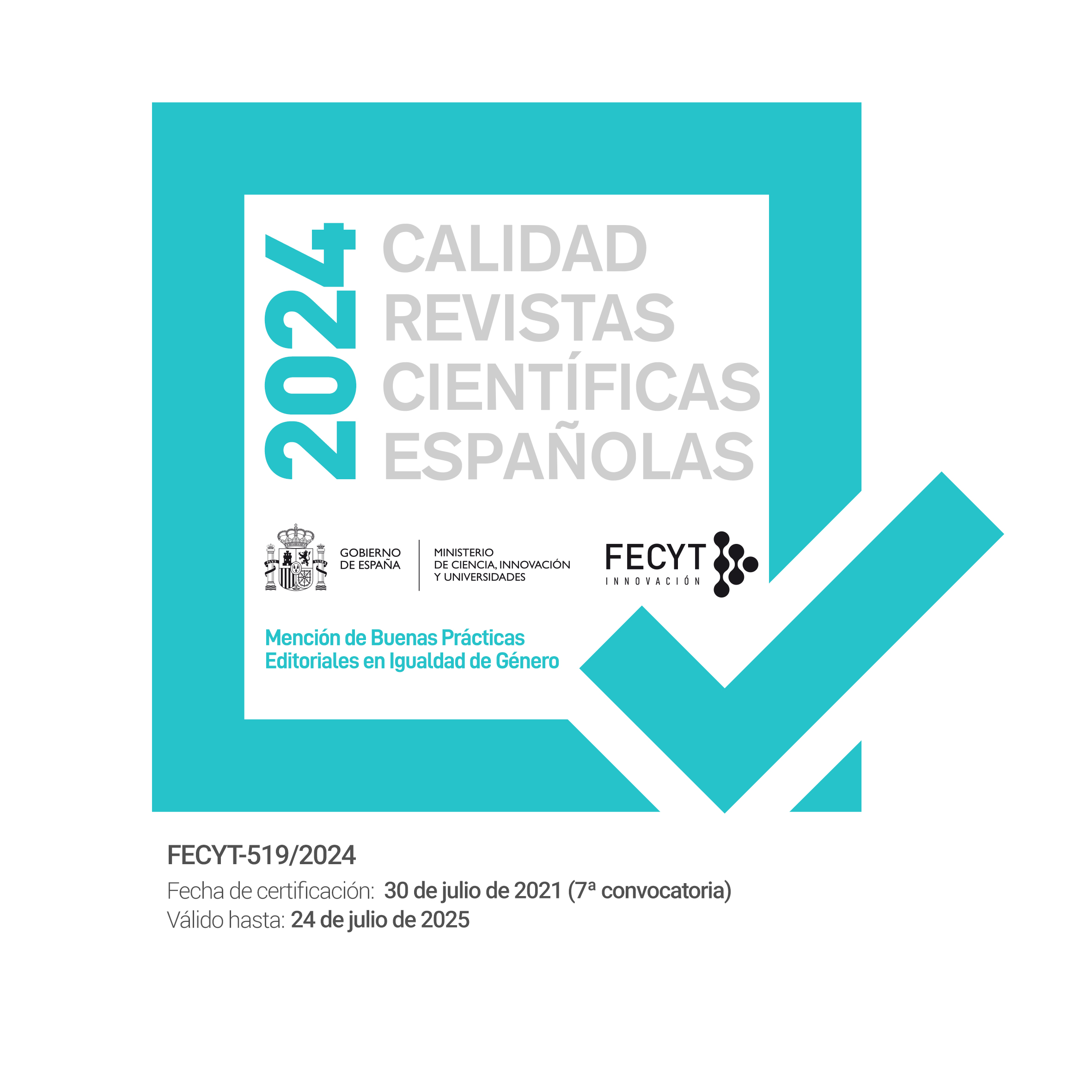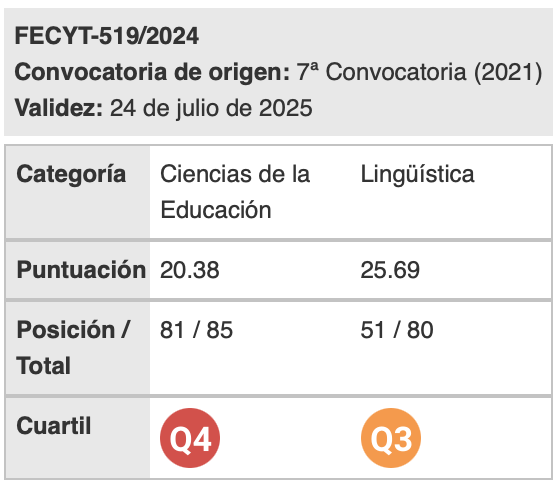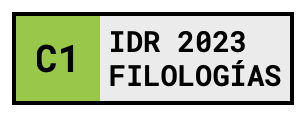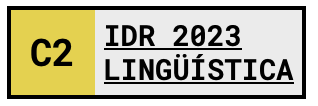In fact and actually in English history texts (1700-1900)
Palabras clave:
actually, in fact, evidentiality, Coruña Corpus, stance, Modern EnglishResumen
ABSTRACT
In this paper, I analyse evidential devises as stancetaking markers in history scientific texts from the Modern English period (1700-1900). For this, I will use the Corpus of History English Texts (CHET), one of the subcorpora within the Coruña Corpus, focussing the attention on how these adverbial devises are used to express interpersonal meanings (Hoye 1997; Biber and Finegan 1988). The adverbials selected for this study, actually and in fact, are said to show authorial stance, therefore they are categorised as epistemic adverbs. From the excerpts available, their use by eighteenth and nineteenth century writers of history texts will be described showing that depending on the context, they may fulfil several pragmatic functions, e.g. indicating different degrees of authorial commitment and detachment towards the information presented, persuasion or politeness and it will be analise as well how authors use those devices to negotiate interactional meanings with their potential readers, mostly colleagues.
Keywords: actually, in fact, evidentiality, Coruña Corpus, stance, Modern English
Descargas
Citas
Aijmer, Karin. 1980. Evidence and the declarative sentence. Stockholm: Almquist-Wiksell.
Aikhenvald, Alexandra. 2004. Evidentiality. Oxford: Oxford University Press.
Alonso-Almeida, Francisco. 2015. Introduction to stance language. Research in Corpus Linguistics 3: 1- 5.
Biber, Douglas. 1988. Variation across speech and writing. Cambridge: Cambridge University Press.
Biber, Douglas. 2004. Historical patterns for the grammatical marking of stance: A cross-register comparison. Journal of Historical Pragmatics 5, 107-135.
Biber, Douglas and Edward Finegan. 1988. Adverbial stance types in English. Discourse Processes 11.1,
-34.
Biber, Douglas, Stig Johansson, Geoffrey Leech, Susan Conrad and Edward Finegan. 1999. Longman grammar of spoken and written English. Essex: Longman.
Chafe, Wallace 1986. Evidentiality in English conversation and academic writing. In Evidentiality and the linguistic coding of epistemology, eds. W. L. Chafe and J. Nichols, 261–272. Norwood, NJ: Ablex.
Conrad, Susan and Douglas Biber. 1999. Adverbial stance marking in speech and writing. In Susan Hunston and Geoff Thompson (ed.). Evaluation in text: Authorial stance and the construction of discourse. Oxford: Oxford University Press, 56-73.
Cornillie, Bert. 2009. Evidentiality and epistemic modality. On the close relationship between two different categories. Functions of Language 16.1, 44-62.
De Haan, Ferdinand. 1999. Evidentiality and epistemic modality: Setting boundaries. Southwest Journal of Linguistics 18, 83-101.
Dendale, Patrick and Liliane Tasmowski. 2001. Introduction: Evidentiality and related notions. Journal of Pragmatics 33, 339-348.
Eggins, Suzanne and James Martin. 1997. Genres and registers of discourse. In Teun A. van Dijk (ed.). Discourse as structure and process. London: Sage, 230-256.
Fraser, Bruce. 1999. What are discourse markers? Journal of Pragmatics 31, 931- 952.
Greenbaum, Sidney. 1969. Studies in English adverbial usage. London: Longman.
Hoye, Leo. 1997. Adverbs and modality in English. London: Longman.
Hyland, Ken. 2005. Stance and engagement: a model of interaction in academic discourse. Discourse Studies 7(2): 173–192.
Hyland, Ken. 2000. Hedges, boosters and lexical invisibility: Noticing modifiers in academic texts. Language Awareness 9: 179-197.
Koutsantoni, Dimitra. 2004. Attitude, certainty and allusions to common knowledge in scientific research articles. Journal of English for Academic Purposes 3: 163-182.
Oh, Sun-Young. 2000. Actually and In Fact in American English: A Data-Based Analysis. English Language and Linguistics 4/2, 243-268.
Simon-Vandenbergen, Anne-Marie and Karin Aijmer. 2007. The semantic field of modal certainty. A corpus-based study of English adverbs. Berlin/New York: Mouton de Gruyter.
Descargas
Publicado
Cómo citar
Número
Sección
Licencia
Aquellos autores/as que tengan publicaciones con esta revista, aceptan los términos siguientes:
- Los autores/as conservarán sus derechos de autor y garantizarán a la revista el derecho de primera publicación de su obra, el cuál estará simultáneamente sujeto a la Licencia de reconocimiento de Creative Commons que permite a terceros compartir la obra siempre que se indique su autor y su primera publicación esta revista.
- Los autores/as podrán adoptar otros acuerdos de licencia no exclusiva de distribución de la versión de la obra publicada (p. ej.: depositarla en un archivo telemático institucional o publicarla en un volumen monográfico) siempre que se indique la publicación inicial en esta revista.
- Se permite y recomienda a los autores/as difundir su obra a través de Internet (p. ej.: en archivos telemáticos institucionales o en su página web) antes y durante el proceso de envío, lo cual puede producir intercambios interesantes y aumentar las citas de la obra publicada. (Véase El efecto del acceso abierto).

Revista de Lenguas para fines específicos is licensed under a Creative Commons Reconocimiento-NoComercial-SinObraDerivada 4.0 Internacional License.






















